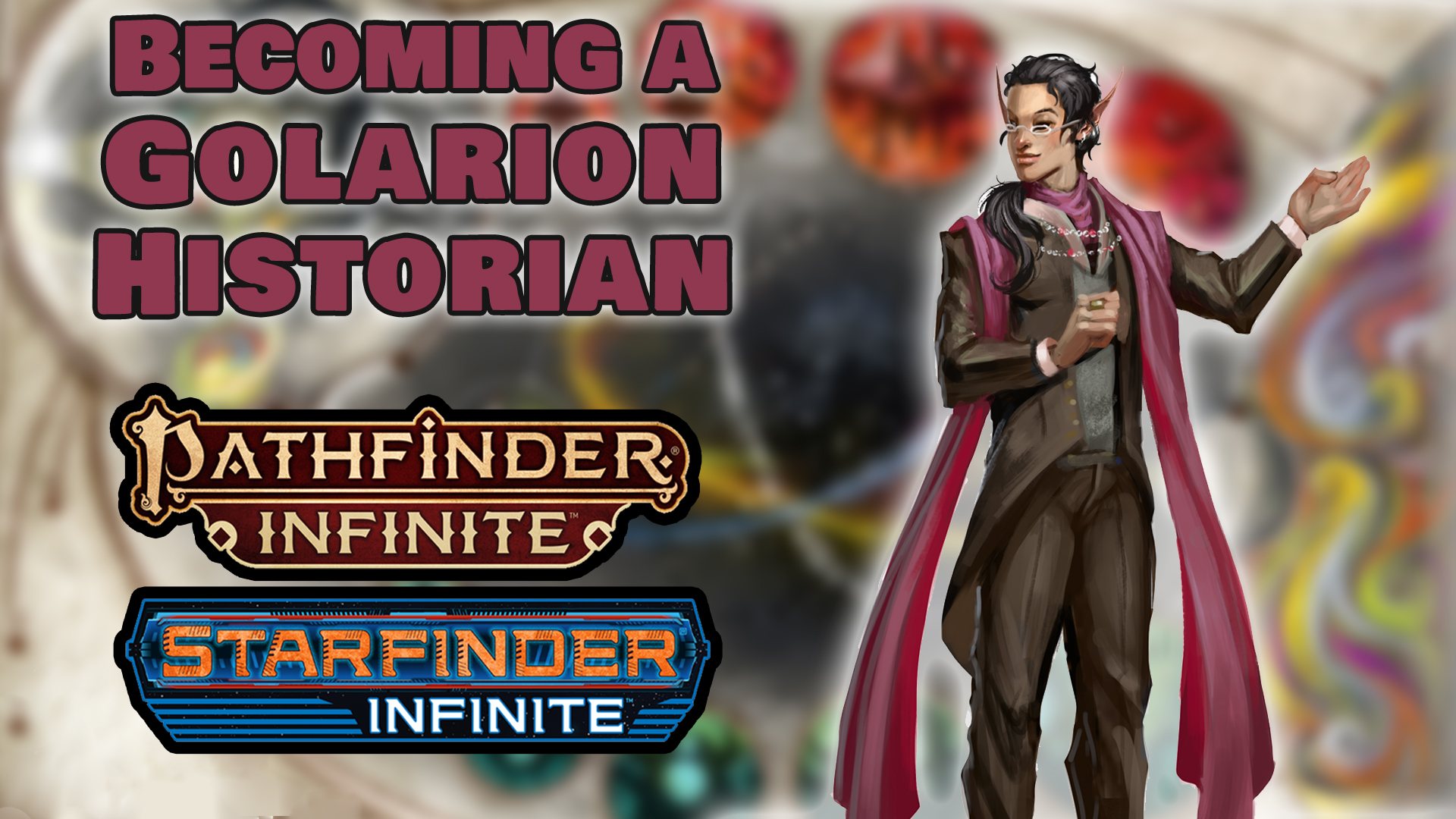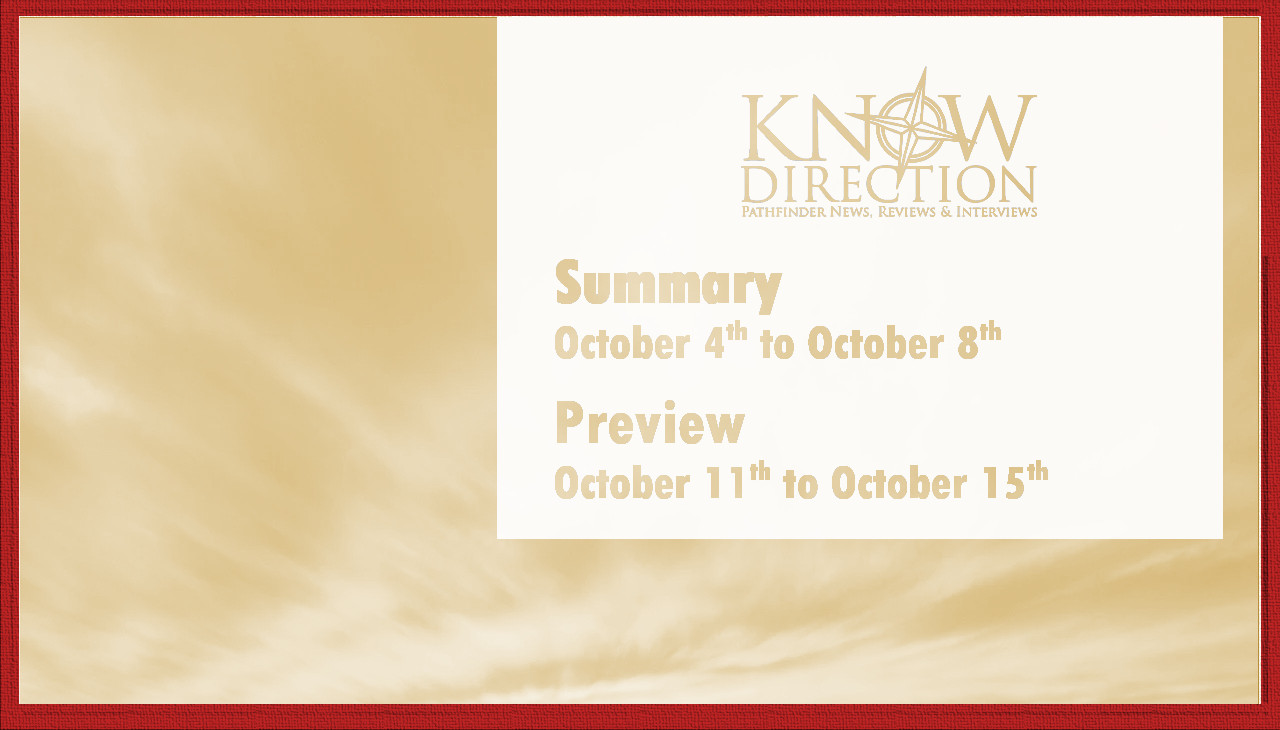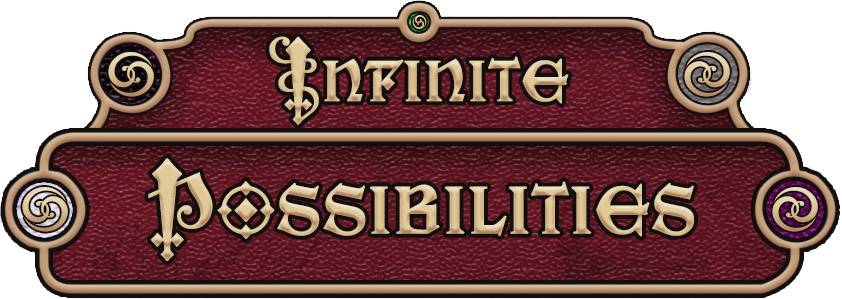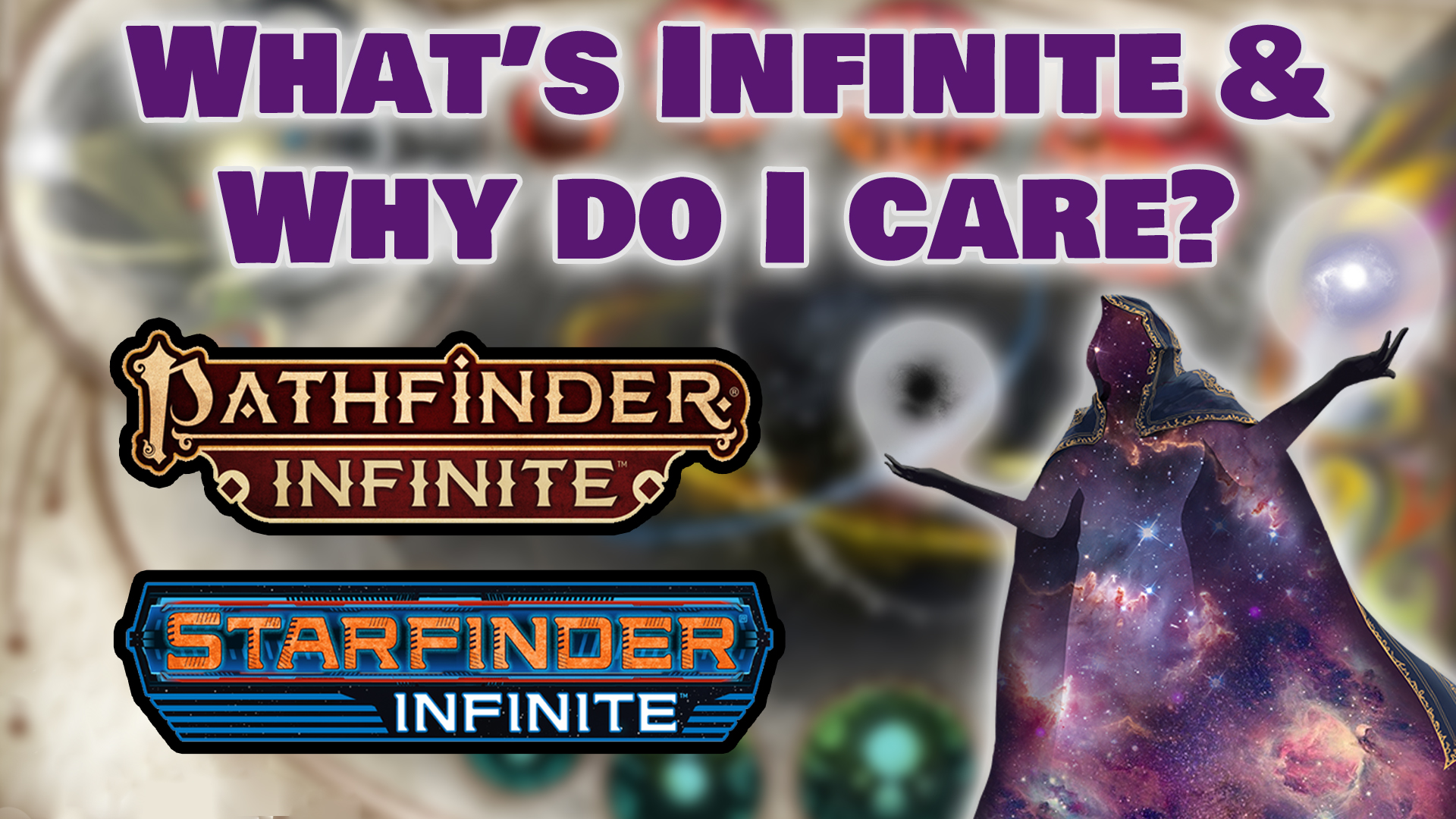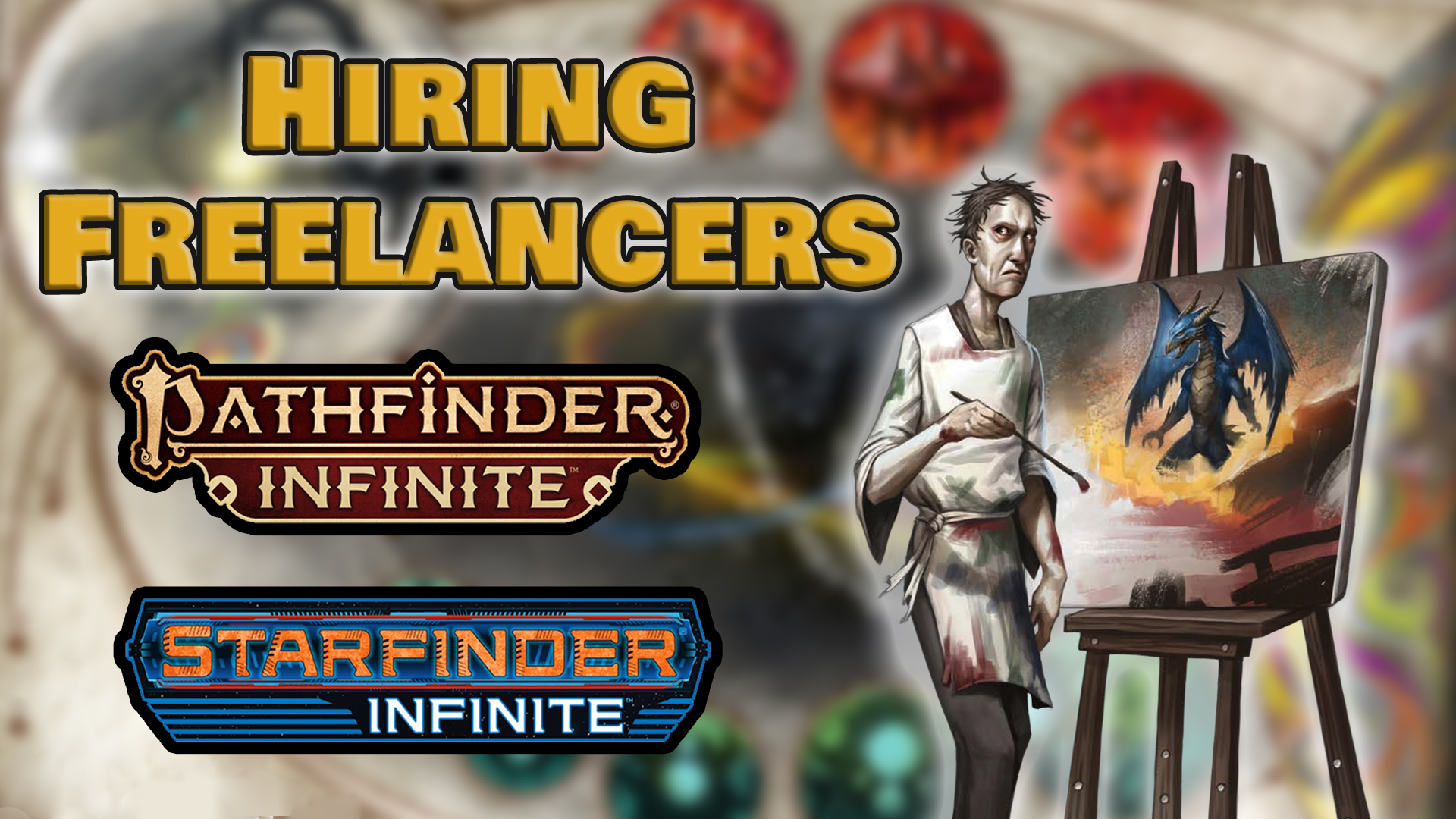“Research is seeing what everybody else has seen and thinking what nobody else has thought.”
– Albert Szent-Györgyi
One of the more valuable resources open to participants of the Pathfinder/Starfinder Infinite program is the vast trove of established lore. One of the most daunting challenges of writing in any established setting is acclimating to canon often so expansive that even the most experienced franchise veterans can feel overwhelmed.
No Research without Action, No Action without Research!
First, you need an idea. Maybe you have a piece of commissioned art that inspired you, or maybe you read a line in a Lost Omens book and you want more. If your product was inspired by something from outside of the Paizo-sphere, your first step is to see if the Lost Omens has an equivalent. Archives of Nethys (1e, 2e, and Starfinder), The Pathfinder Wikis (here and here), and even Paizo.com are all legitimate places to start. But often the best place to start is your favorite search engine; Looking for keywords (and related, broader keywords) can help you find what canon has already established for your idea. Often this means searching those sites using an external search engine (Google:”site:2e.aonprd.com”; see the Search Engine Cheat Sheet if you aren’t aware of operators) and using multiple search engines to do so!
Wiki Citations: Check those citations in your wiki article to get an idea of what books to look at that relates to your idea. Oftentimes this can be kind of vague; Are you trying to figure how the Ancient Azlant dealt with criminals? Start in Ancient Azlant. Look at the citations and try to decide for yourself whether or not they are likely to reference the everyday city life of citizens in Ancient Azlant. Lots of references to “Ruins of Azlant”? It’s probably a good idea to check the back-matter of all six books!
Searching PDFs: Download every PDF in your Paizo account (go on, the article will still be here). Move them into the same folder(s) (I recommend renaming them and sorting them by product type). I know, this is a drag, but trust me you are saving so much time in the long run. Now open Adobe Reader. Hit “Ctrl+Shift+F”. Click “all PDF Documents in…” and browse to that folder. Now, assuming you have an adequate collection of PDFs from Paizo, you can simultaneously search all your PDFs for keywords related to your project! The first time you do this it will be a total drag and I highly recommend you close any ongoing applications you have in the background, especially videos and video games (yes, even your AFK auction house).
Physical Books: Don’t underestimate the value of physical books! Whether it is the ability to get off your computer and feel the actual paper, or the ease of having an extra “monitor” on your lap in the form of a paper book, having physical copies of your books open while you scour your computer’s databanks is an awesome resource, for those of us privileged enough to afford it!
Non-Paizo Material: And there are more than just Paizo-published books available! Pathfinder Infinite writers can use Pathfinder infinite authors can use elements from other Pathfinder or Starfinder Infinite works, such as characters, locations, monsters, or events. You have to include a link to the original work within your PDF, such as with an internal citation. (Again, see “Rules of Infinite” and the Pathfinder Infinite FAQ for more information). You can even contact those authors about potential future collaborations, or just to thank them for inspiring your awesome creation! (Networking is critical! And of course, there are tons of non-Pathfinder-related content you can use to inspire your work: from Wikipedia to a paper Encyclopedia; from Anime to a live-action Play! Just be certain to be careful when using these works that your work isn’t derivative or culturally insensitive. See “A Note on Creative & Cultural Appropriation” below.
Networking: Other people also make a great resource, although you should be wary if you are working under an NDA (always ask the developer/team in advance if you are uncertain). Reddit groups (such as Pathfinder2e and Pathfinder_RPG), Facebook groups, and even Discords are great places to ask veterans of the game on Lore. There are a number of them on the Pathfinder RPG subreddit Discord in the #golarion_lore channel who are more than welcome to point you where you need to go, including notable Paizo authors who know enough about Golarion to fill out an encyclopedia. When asking others always remember that oftentimes less-is-more. Instead of going: “I’m trying to write a book on muffins to sell on Pathfinder Infinite; Does But there are dozens of other Pathfinder discord servers (such as the Know Direction Discord) that have just as many veteran fans and authors who can help you! (Seriously, I’m in like 50 servers now. Please send help.) Cheliax have any blueberries?” just go ahead and try “Does Cheliax have Blueberries?” Come back in an hour and you’ll be shocked to see people throwing page numbers at you to reference both whether or not Cheliax has blueberries and why Cheliaxan blueberries are inferior to Andoran! (Spoiler: It’s the sweet taste of freedom.)
Once you get your first couple of leads, you can really start cooking!
Documentation Will Set You Free
I get it. When you get on a roll and have three books, seventy-two tabs, and three discord DMs going you don’t want to stop the flow of thoughts just to write any of it down in your notepad/google doc. Many of us fall into this trap of believing that if an idea is good it doesn’t have to be documented. This is a Level 12 Hazard that you need to avoid at all costs! (And, no, it doesn’t have the incapacitation trait!) Documentation isn’t (just) about “remembering good ideas”. It’s about freeing your mind’s current train of thought in a way that doesn’t jeopardize your current ideas. It’s about remembering the route your research took so you have a point of reference in case you need to go back and try another route through the Forest of Knowledge. Keep your page counts. Use bookmarks! Save those URLs (preferably in a folder for your project). It’s also about keeping documentation so you can properly cite your sources when you reference them in your work (check “Rules of Infinite” for more information). This is especially important if you want to reference work (such as the work of other Pathfinder Infinite Authors), which can help your customers find related work that will help them integrate your ideas into their character/campaign!
Don’t Lose Focus… or Inspiration!
The forest of knowledge is a tangled briar of paths so twisted that it’s easy to get lost. And while you might find some inspiration that is tempting you to write a different book, my best advice for you is to simply document it as such as back up a little so you don’t completely lose your way! That isn’t to say you can’t go another way, and it’s up to each creative to realize their limit when its comes to topical digression. Being inspired and motivated is a wonderful gift that you should cherish, and documenting your research ensures you can more easily return to the same headspace at a later date when your current project is finished. Just remember that the strength of 3pp and Pathfinder Infinite is that your customers can key into exactly what’s on the cover. Are they looking for an archetype that wields spears? Awesome, they don’t need a 20-page micro-fiction, 4-pages of Runelord Metamagic, and a 2-page Bestiary that will quadruple the cost of the book. Just give them the archetype, and use the book to help market your other ideas. Documentation is key here: Knowing exactly where to find the information you need for your next book will dramatically cut down how much time you have to spend researching it!
A Note on Creative & Cultural Appropriation
Now Pathfinder Infinite doesn’t look like it has the same restrictions many developers have concerning how much or how little “real world lore” you can use, but to keep with the same high standards as Paizo I highly recommend you consider this advice. Golarion isn’t Earth. Avoid using real-world names. There are tons of fantasy name generators out there, and you can get an idea for the “feeling” of people’s names in Lost Omens looking over a curated list. Using historical names has unforeseen baggage that can permanently mar your product. Using modern names has that same problem, and can alienate players who happen to pick up your product in the future. The cultures in Golarion are inspired by real-world cultures, but they are not those cultures. Use the lore Lost Omens has! And if you find yourself being inspired by lore, especially of a foreign culture, your product will greatly benefit by hiring a cultural consultant (see “Hiring Freelancers”; Ask other industry professionals for recommendations). Using words from other cultures can also carry the same taboo; Golarion isn’t Earth, and our language isn’t present in the canon of Golarion. There are cases when a foreign word is undeniably the best choice to help describe an object (like a Fulu), or even a monster (like a Penanggalan), but you have to make sure without a shadow of a doubt that you are using the correct word! I once again highly recommend finding a sensitive reader and/or researching at least three credible and peer-reviewed sources that can confirm your hunches about the idea. Many otherwise would-be great products have found themselves mocked for using the wrong names, and you don’t want that to be what your product is remembered for! Even worse, you could completely ruin a game (or even a relationship) by including a word that evokes an awkward history that not everyone at the table completely understands. This, too, is part of doing responsible research.
Likewise, you don’t want people to be unable to separate your work from another piece of fiction. There are tons of great examples of game mechanics, even from Paizo-published books, that were probably inspired by pop culture. There’s nothing wrong with watching a film or reading a comic book and going “man, that spell would be so awesome on the Occult list”. But no one wants to cast “Thanos’ Gauntlet Snap”. It’s derivative, unevocative, and a slap to the face of any game’s verisimilitude. The advantage of Pathfinder Infinite is being able to expand on the Pathfinder Setting. In other words, keep Pathfinder in Lost Omens. This is not only a requirement of the Pathfinder Infinite program but a rare open invitation from the company to use their proper nouns. And when you have a vault of thousands of proper nouns and names, why would you limit your own custom content to something someone else already used?
That being said, yes, it does hurt when you google that perfect name for your new Ancestry to find it was already used in some game you’ve never heard of before. But nine-times-out-of-ten? You’ll come up with a much better name if you just give it a little bit more time. (Also, naming stuff is hard. Like super hard. Don’t let it get you down. Save it for last and keep working!)
Finally, Research should be Fun!
If you find yourself burning out on your research, take a step back and just remember that diving head-first into the history of TTRPGs and Pathfinder is supposed to be part of the fun. It can get frustrating, and maybe that’s just your brain’s way of telling you to take a break. Because, ultimately, research is one of the most fun steps of tabletop game design (and fiction writing). Diving head-first into the minds of your fellow creatives will help give you newfound insights into a world of fantastic products, and will inadvertently improve your skills as an author. You aren’t just looking for blueberry facts. You’re looking to see what formats, sentence structures, and mechanics-to-flavor ratios resonate with you. You are using an opportunity to get to know this fantastic franchise you’ve chosen to not just play in but to expand upon with your own creative vision! And if you aren’t having fun writing your work, it will often come out that way in the final product.
So if you start to stress out? Take a bath. Watch some TV. Or just enjoy a warm blueberry muffin.

